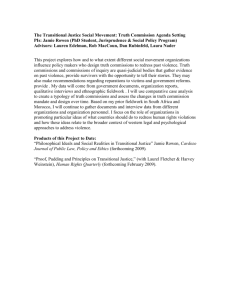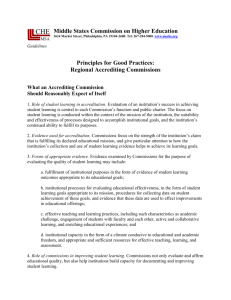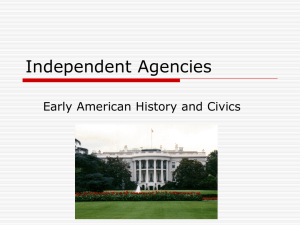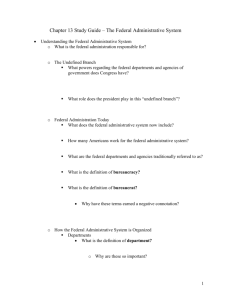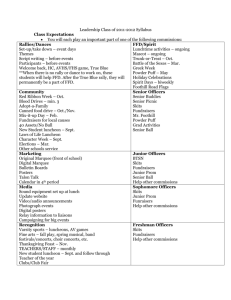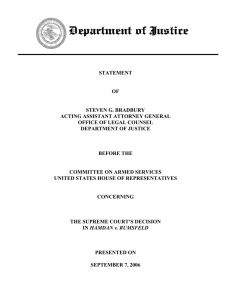STATEMENT OF BRIGADIER GENERAL THOMAS L. HEMINGWAY
advertisement
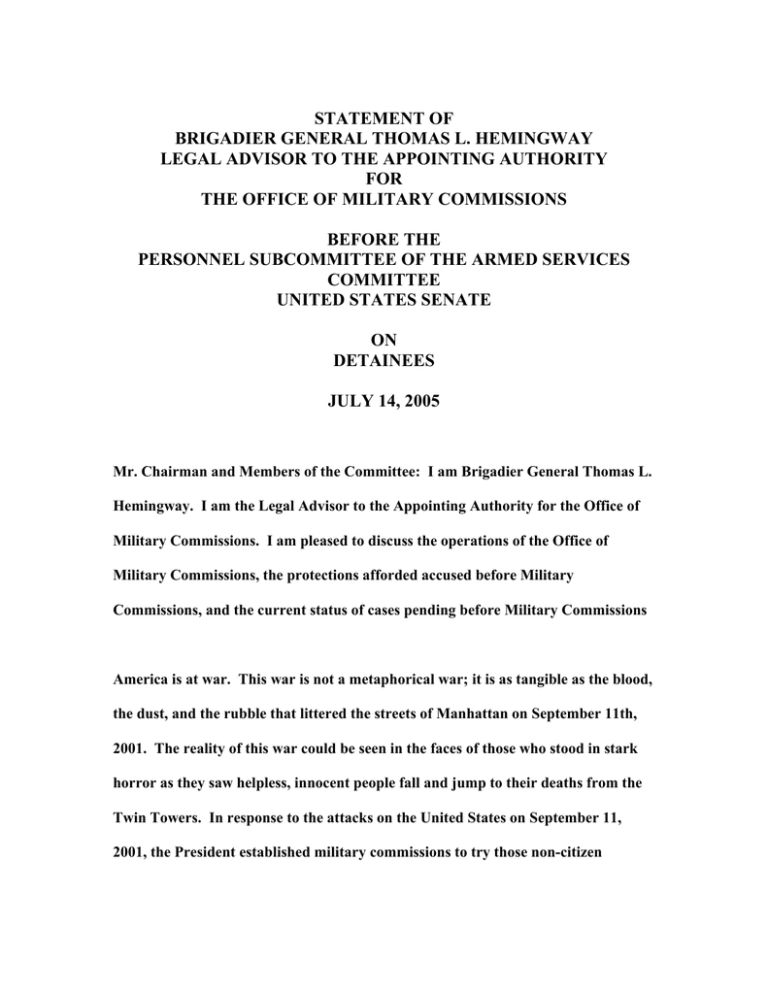
STATEMENT OF BRIGADIER GENERAL THOMAS L. HEMINGWAY LEGAL ADVISOR TO THE APPOINTING AUTHORITY FOR THE OFFICE OF MILITARY COMMISSIONS BEFORE THE PERSONNEL SUBCOMMITTEE OF THE ARMED SERVICES COMMITTEE UNITED STATES SENATE ON DETAINEES JULY 14, 2005 Mr. Chairman and Members of the Committee: I am Brigadier General Thomas L. Hemingway. I am the Legal Advisor to the Appointing Authority for the Office of Military Commissions. I am pleased to discuss the operations of the Office of Military Commissions, the protections afforded accused before Military Commissions, and the current status of cases pending before Military Commissions America is at war. This war is not a metaphorical war; it is as tangible as the blood, the dust, and the rubble that littered the streets of Manhattan on September 11th, 2001. The reality of this war could be seen in the faces of those who stood in stark horror as they saw helpless, innocent people fall and jump to their deaths from the Twin Towers. In response to the attacks on the United States on September 11, 2001, the President established military commissions to try those non-citizen members of al Qaeda and other persons engaging in specified terrorist activities who are alleged to have committed violations of the law of war and related offenses. The use of military commissions predates the formation of our republic. Since the Revolutionary War, the United States has used military commissions to try enemy combatants for law of war violations. In the Mexican-American War, during the Civil War, following the Civil War, during and after World War II, military commissions were used to try enemy combatants for violations of the laws of war. In the President's Military Order establishing military commissions, he mandated that the accused shall be afforded full and fair trials. The President also determined that the Federal Rules of Evidence are not practicable for military commissions given the nature of the conflict. This determination is based on the unique factors present in conducting judicial proceedings against suspected war criminals at a time when the United States is actively engaged in an on-going armed conflict. Instead of the Federal Rules of Evidence, military commissions have adopted the internationally accepted standard for admissibility of evidence - probative value. The President’s Military Order focuses on the unique factors of the current ongoing hostilities and affirms that national security interests require the continued application of US national security laws in developing commission instructions and regulations consistent with the accused's right to a fair trial. These orders, instructions and regulations afford an accused the following rights: 1. Presumption of innocence 2. Trial before an impartial and independent panel of three to seven officers 3. Notification of charges in language understood by the accused 4. Call witnesses and present evidence 5. Cross-examine witnesses and examine evidence 6. Election not to testify at trial with no adverse inference 7. Appointment of military counsel at no cost to defendant and right to hire civilian counsel at no expense to the government 8. Privileged communications with defense counsel 9. Adequate support and resources to defense counsel 10. Appointment of interpreters and translators 11. Open proceedings, except as absolutely necessary to protect national security 12. Proof of guilt beyond a reasonable doubt 13. Review of the record of trial by a three-member review panel The rules of evidence and procedure established for trials by military commission compare favorably to those being used in the International Criminal Tribunal for Rwanda and the International Criminal Tribunal for the former Yugoslavia. These rules are consistent with our national commitment to adhere to the rule of law. The Office of Military Commissions has taken key steps in moving the commission process forward. To date, the President has determined that twelve detainees currently at Guantanamo are subject to his Order. The Appointing Authority, Mr. John D. Altenburg, has approved charges against four accused and referred these charges to military commissions for trial. Those trials commenced late in the summer of 2004. The Office of Military Commissions has been working diligently to convene military commissions; however, the trials are stayed pending an appellate court decision in the case of Mr. Hamdan. Military and civilian counsel for Mr. Hamdan brought an action in the United States District Court to review the legality of trial by military commissions. The district court affirmed the legality of military commissions to try violators of the law of war and a review panel as an appeals mechanism; however, the Court raised concerns about the commission process whereby an accused may be excluded from the hearing to protect classified and protected information. Because this protection is essential to the continued effectiveness in our current war on terror, the government has appealed this ruling. The delays to the commission process are directly attributable to the exercise of the accused’s ability to challenge that process in the federal courts. While the appeal is pending, investigations and submissions of charges against additional accused continue. This is the first time since World War II that the United States has had a need to convene military commissions. While it is important to move quickly back to trial, the Office of Military Commissions’ movement forward is measured with full awareness and consideration of the rights of an accused and the needs of our Nation. The ongoing Global War on Terrorism continues to pose many unique challenges in an asymmetrical battlefield. Neither the United States nor the international community contemplated a non-state organization having the capability to wage war on a global scale. Military commissions are the appropriate forum to preserve safety, protect national security, and provide for full and fair trials consistent with our standards and those of the international community.
